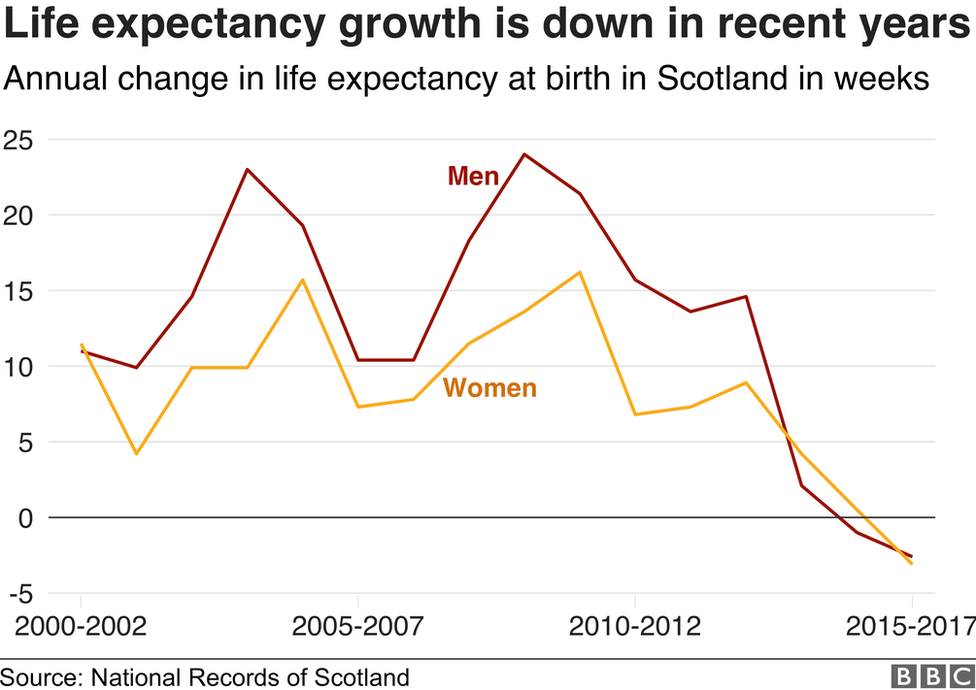Deprivation, affluence and a 'shocking' health gap
- Published

Deprivation is associated with ill health and a shorter life
The link between deprivation and health has been well-explored in recent years, but today's figures from National Records of Scotland (NRS), external put it into sharp relief.
For a boy born in 2018 in one of the 10% most deprived areas of Scotland to have a life expectancy fully 13 years shorter than a boy from the most affluent areas is surely shocking.
The gap for girls is 9.6 years.
There is clear evidence in the data tables published by NRS of the reason for this.
A boy born in the poorer areas can expect to spend almost a third of his life (29.2%) in poor health.
For girls it is 34.5%. A girl in this group can expect to enjoy an additional 23 years of good health over her lifetime.
At the other end of the scale, an affluent baby boy will have ill health for just 13.1% of his life, with a slightly higher figure (14.9%) for girls.
Health resources
Life expectancy in Scotland has been the lowest of any UK country since 1982
NRS Statisticians are now working with NHS Health Scotland to help identify the reasons for stalling life expectancy and ultimately divert resources to help Scots live longer and healthier lives.
There is good news within the report. The lowest rates of stillbirths and children dying in their first year.


But other figures published by NRS on drug-related deaths perhaps skew the picture on overall life expectancy.
Of the 58,503 deaths in Scotland in 2018 1,187 (2.03%) were caused by drugs, and almost all were of people aged below 70.
The death toll caused by drugs is well-known within the government and the health service - as are its links with deprivation.
Reducing poverty is the starting point for ministers wishing to tackle health inequalities, the most extreme example of which is a huge gap in life expectancy between rich and poor.
- Published14 August 2019
